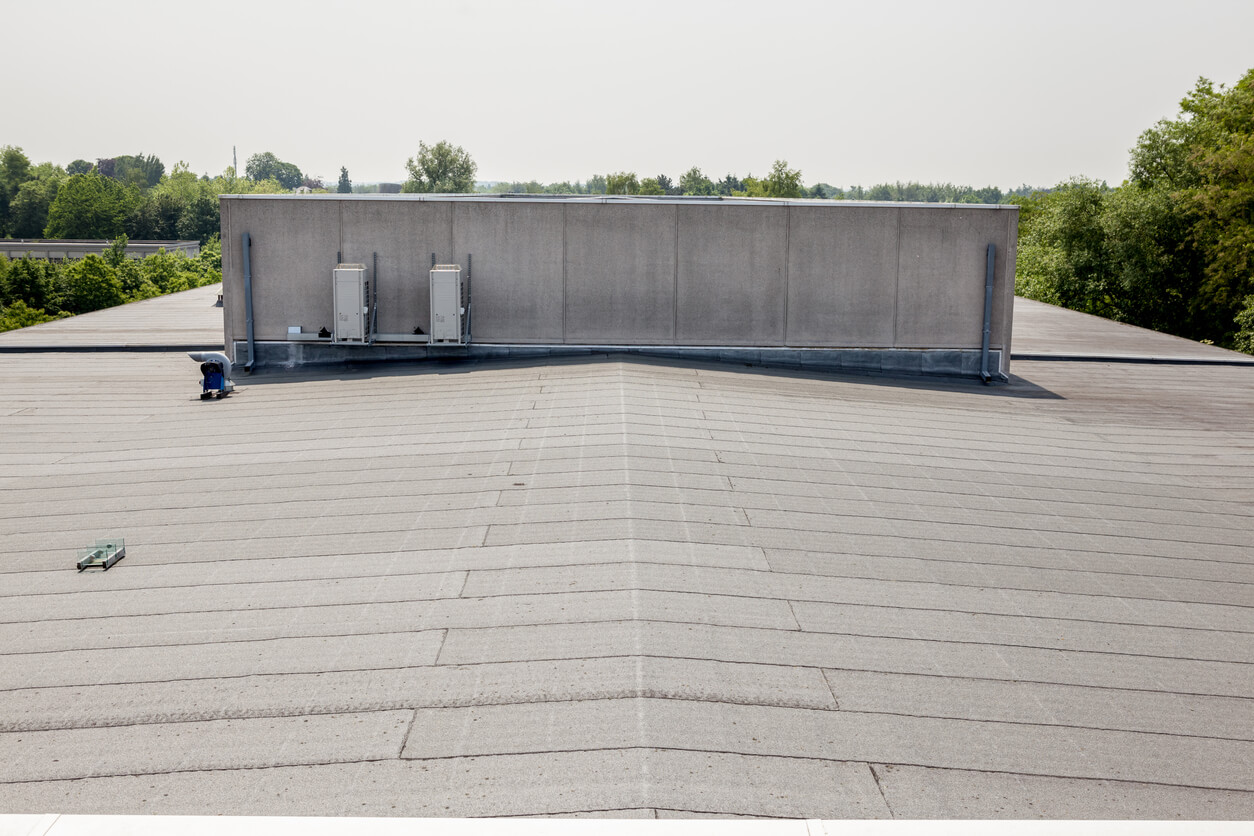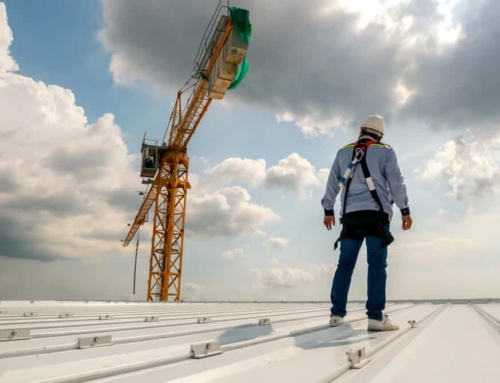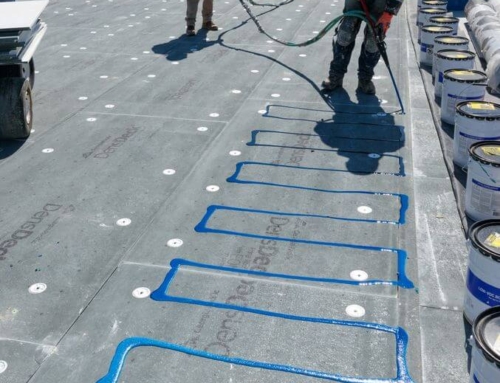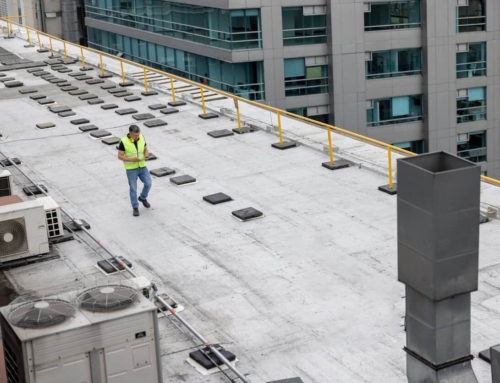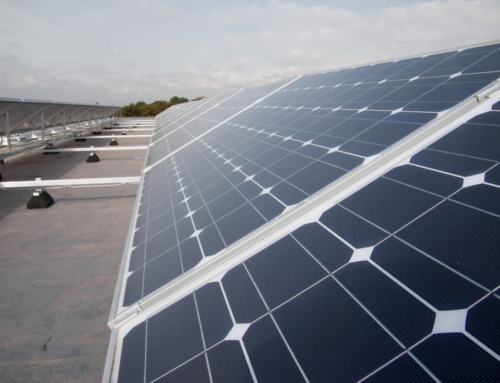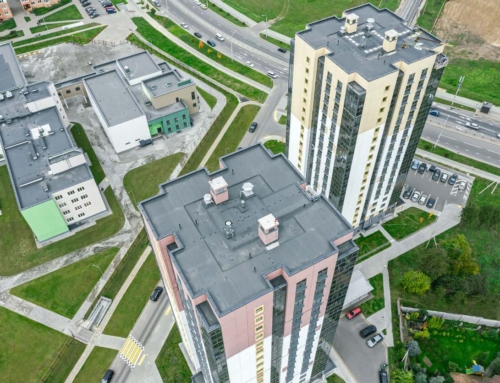You already know that a lot goes into roofing an industrial or commercial building. While we could write volumes on commercial roofing types, consider this blog as a primer.
These are the most common types of commercial roofing systems.
Contents
- 1 Single Ply Roofing Systems
- 2 TPO (Thermoplastic Polyolefin)
- 3 PVC (Polyvinyl Chloride)
- 4 EPDM Roofing (Ethylene Propylene Diene Monomer)
- 5 Modified Bitumen Roofing Systems
- 6 Built-Up Roofing Systems
- 7 Metal Roofing Systems
- 8 Liquid Applied Roofing
- 9 Green Roofs
- 10 Learn More About Commercial Roofing Options from Nations Roof
Single Ply Roofing Systems
“Single ply roofing” typically refers to roof systems that use materials such as TPO, PVC, and EPDM membranes. These systems are made up of incredibly flexible, robust materials categorized as thermoplastic membranes or thermoset membranes.
These single-ply roofing materials resist peeling, cracking, and other types of weathering. They can be mechanically attached, adhered or ballasted to secure the membrane on the roof. All of these commercial roofing systems can also be installed through all four seasons.
TPO (Thermoplastic Polyolefin)
TPO roofing is a single-ply membrane system typically composed of polypropylene and ethylene-propylene rubber that has been polymerized together. This membrane is typically reinforced with a polyester mat and has hot-air welded seams. TPO’s are typically white, but can manufactured in grey, tan or even custom colors. The most common type of membrane sold in the US is TPO.
PVC (Polyvinyl Chloride)
PVC roofing materials are similar to TPO with polyester reinforcements, hot-air welded seams and color options. The top ply of PVC contains additives that make the membrane UV resistant and more resistant to chemical attack. The bottom ply is typically darker and includes materials that increase the system’s flexibility, making it easier to install. PVC roof membranes are durable, long-lasting, and fire-resistant.
EPDM Roofing (Ethylene Propylene Diene Monomer)
Ethylene propylene diene monomer is a chemical compound known for its elasticity and toughness. Often called, “rubber,” EPDM roofing resists ultraviolet light and offers resilient strength. EPDM roofs have a track record of performance that goes back 50 years which makes it a popular roofing material for low-slope commercial buildings all over the world.
Modified Bitumen Roofing Systems
A modified bitumen roof combines asphalt and a chemical polymer that increases the system’s flexibility and temperature resistance. It can be applied to a substrate using cold process adhesives, hot asphalt or torches. Regardless of how the modified bitumen membrane is applied, they are considered highly durable due to the greater thickness of the membrane, fiberglass or polyester reinforcements and granulated or coated surfaces.
Built-Up Roofing Systems
Built-up roofing, or “BUR,” is one of the oldest surviving commercial roofing systems and consist of three or four layers of fiberglass felts that are applied with hot asphalt to “build up” the roofing system . It is not uncommon to combine built-up roofs with modified bitumen cap sheet to create a hybrid system.
Metal Roofing Systems
Metal roofing systems often add a striking aesthetic dimension to a building. There are different types of metals: aluminum, copper, zinc or steel, the most common type that are available in different finishes.
Liquid Applied Roofing
Roofing contractors construct a liquid applied roofing membrane on the spot as it is made with resin and a reinforcing polyester. Because it can reach those hard-to-access places, it offers excellent waterproofing capabilities. Another benefit of liquid applied roofing is that it doesn’t emit strong odors, making it a good option for sites that may be sensitive to odors.
Green Roofs
Green roofs, or vegetative roofs, can help reduce energy costs with natural insulation and improve water management systems on a property. Green roofs still require an appropriate waterproofing system to keep the building dry. Although they are not appropriate in every situation, they can also improve air quality and help reduce the urban heat island effect.
Learn More About Commercial Roofing Options from Nations Roof
We know there’s a lot to discuss regarding your commercial roofing project. So let’s begin the discussion by talking with your local commercial roofing expert – Nations Roof. Our team can answer all of your questions about commercial roofing systems appropriate for your building and local climate. Fill out the contact form on our website to get started.

